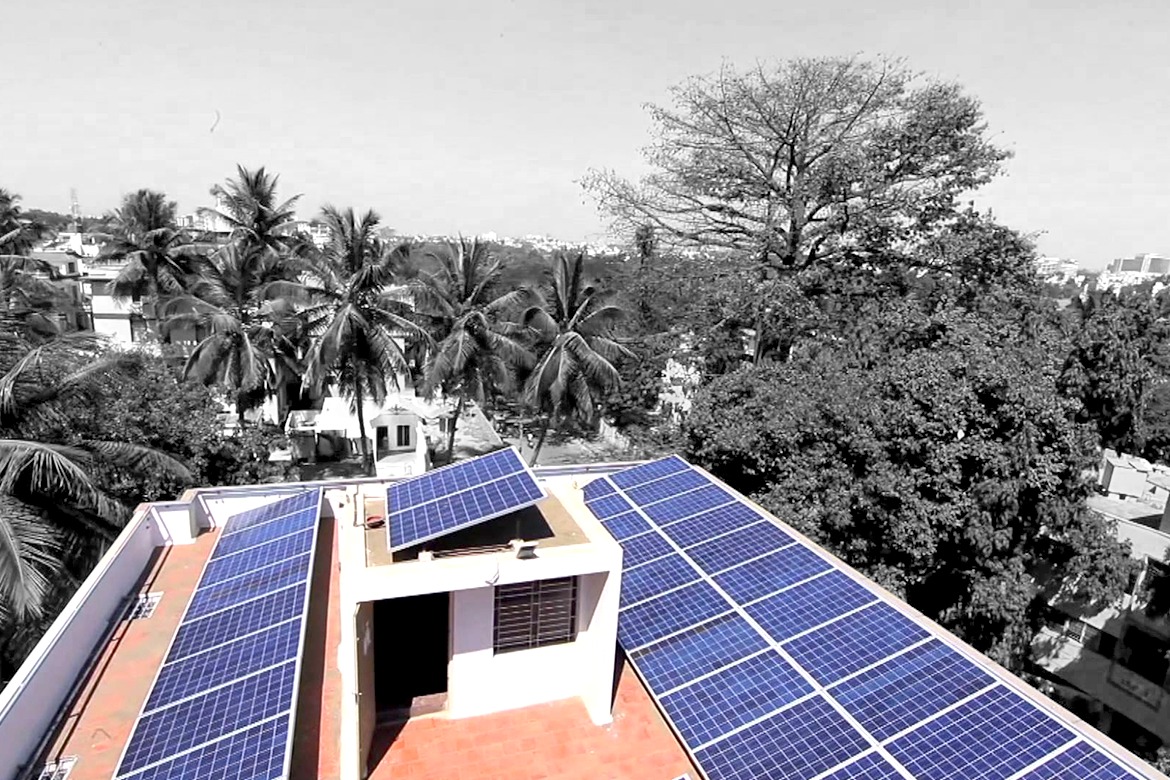Solar energy is abundant, renewable, and sustainable. As the cost of utilizing rooftop solar to generate power decreases year after year, more Indians are opting for solar. There are already over a million solar panels installed in India.
What is the mechanism of solar energy and why should we use it?
PV modules absorb sunlight and convert it into a usable electrical current. Because the sun shines all over the earth, solar energy can be used anyplace. Because solar electric systems may be paired with batteries for energy storage, they may be able to operate independently of the utility grid, making them cost-effective for remote locations. The best part about harnessing the sun’s energy with the best solar panel is that you don’t have to go looking for it; it’s available to everyone, everywhere.
Cost-cutting
Going solar has a lot of financial advantages as well as lower monthly electricity expenditures. The application of electricity
- Solar energy system dimensions
- Direct sunlight should be available 24 hours a day, whether you own or rent your system.
- Dimensions and angle of the roof Tariffs for electricity in your location
- A solar electric system may benefit anybody who wants to reduce monthly electricity costs while also making a low-risk, long-term investment.
Home Value Appreciation
Solar panels, like a renovated kitchen or a finished basement, are considered upgrades, thus investing in a solar energy system will almost surely increase the value of your home. According to surveys, homeowners pay a premium for a solar home; one study by Lawrence Berkeley National Laboratory indicated that solar increased the value of a home by around $15,000 on average. Despite market factors such as electricity costs and system size impacting the magnitude of the premium, solar homes can sell for more than those without PV.
Environmental Advantages of Solar Energy
Solar energy has the least negative environmental impact of any other energy source. It does not produce greenhouse gases or pollute the environment. Because many solar systems, such as residential solar panels, are located in urban areas, solar energy generation makes little noise.
Lower Your Energy Costs
This will save you money on your energy bill right now. You may also generate money by selling the power you don’t use. Are you planning to switch to solar panels but are still confused, then you need to understand that it is one of the best ways of cost-saving. It is highly beneficial for organizations to have solar panels as it will help in cutting down the expenses that they have to incur for the electricity bills. Also, the ones who have solar panels in their homes can enjoy almost zero expenditure on bills.
Development of Technology
Quantum physics and nanotechnology breakthroughs have the potential to increase solar panel efficiency and quadruple, if not triple, solar power system electrical input. People are enthusiastic about solar energy and are seeking ways to incorporate it into their daily life. Solar panels may be readily installed and used to generate electricity.
It Improves Energy Access
Despite the fact that India’s power deficit is rapidly decreasing, many individuals in rural and urban areas still have limited and unreliable electricity access. These people must rely on non-renewable energy sources like diesel generators. These options are harmful to one’s health and vary in terms of running costs. Solar energy is a cost-effective source of electricity in this situation.
Endless Uses in a Number of Forms
Solar power may be used for a variety of applications in addition to generating energy. It may heat water as well as provide hot water or air to a structure. It’s also possible to utilize it to run electric generators.
Solar Energy Is Used Almost Everywhere
India has a massive solar resource. In reality, the yearly electrical consumption in India is equal to one hour of the summer sun at midday. The majority of states in the US have good to exceptional solar resources. Even locations with limited solar resources, such as the Pacific Northwest and Alaska, may save money and have solar resources comparable to nations with well-developed solar PV, such as Germany.
Environmental
Each kilowatt-hour (kWh) of solar energy produced reduces greenhouse gas emissions such as CO2 as well as other harmful pollutants including sulfur oxides, nitrogen oxides, and particulate matter. Solar also cuts down on water use and extraction.
Making a positive impact on the environment
Electricity derived from fossil fuels is handy, but it is bad for the environment. You have invested in a green and renewable energy source that is good for the environment by installing solar rooftop systems. Solar energy is fully pollution-free, producing no air pollution, water pollution, or greenhouse gas emissions. It is also carbon-free; when power is generated by solar panels, no harmful emissions are discharged.
Conclusion
Solar power is the most common alternative energy source that is simple to install in your house. It is a dependable and long-lasting power source that, when properly channeled, can




